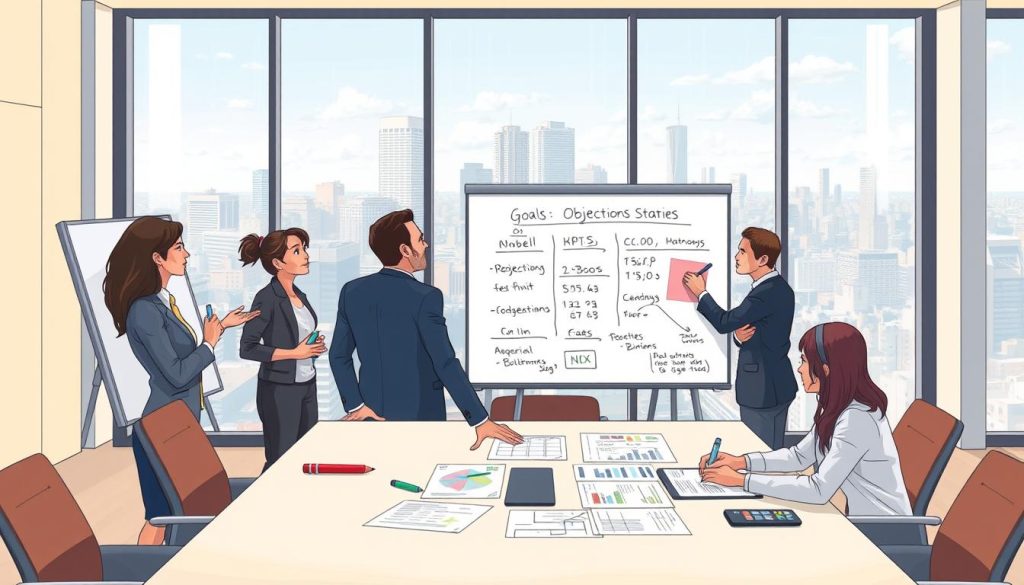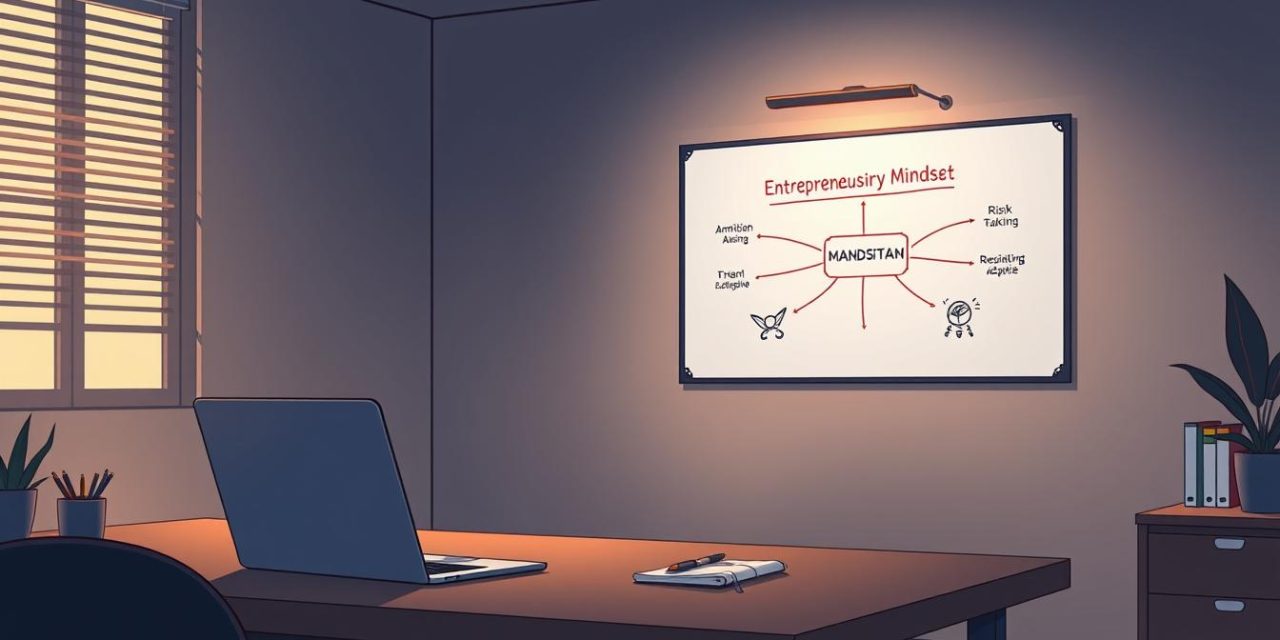What if the secret to career security isn’t about climbing corporate ladders or chasing promotions? Imagine instead building unshakable stability by rewiring how you approach challenges entirely.
In today’s unpredictable job market, traditional career paths no longer guarantee success. Professionals across France are discovering that creative problem-solving and strategic adaptability matter more than job titles. This shift requires thinking differently – seeing obstacles as stepping stones rather than dead ends.
Our research reveals that individuals who embrace this approach experience 42% higher job satisfaction. They don’t just survive market changes – they thrive through them. Whether you’re negotiating contracts or managing teams, this mental framework turns uncertainty into your greatest advantage.
Table of Contents
Key Takeaways
- Professional stability now demands creative thinking over rigid career plans
- Adaptability skills outperform traditional job-specific expertise
- Risk management becomes a strategic advantage, not something to avoid
- Every professional can develop entrepreneurial thinking patterns
- Challenges transform into growth opportunities with the right perspective
- Value creation drives career security more than role longevity
Introduction to the Ultimate Guide
Career stability today requires more than traditional job-hopping tactics. This guide serves as your roadmap for transforming challenges into springboards for professional advancement across France’s dynamic market.
Purpose and Scope
We’ve designed this resource to help professionals reframe obstacles through strategic adaptability. Unlike generic career advice, our focus lies in actionable methods that align with France’s labor regulations, corporate cultures, and economic trends.
The content bridges theory with practice – from recognizing market shifts to negotiating project ownership. You’ll discover how to identify hidden opportunities in daily workflows and convert industry knowledge into tangible value.
Target Audience: Professionals in France
Whether you’re negotiating Parisian corporate contracts or building a Marseille-based consultancy, this guide addresses France-specific scenarios. We focus on three key areas:
- Adapting entrepreneurial thinking within traditional employment
- Leveraging cultural workplace norms for innovation
- Navigating France’s unique freelance ecosystem
Our approach helps you strengthen existing skills while developing new competencies that employers and clients actively seek. This isn’t about becoming a startup founder – it’s about cultivating the growth-oriented perspective that drives modern career security.
What is an Entrepreneurial Mindset?
Imagine viewing every workplace challenge as a hidden doorway to advancement. This perspective defines the entrepreneurial mindset—a way of thinking that transforms routine tasks into launchpads for growth. Unlike traditional career approaches, it focuses on value creation rather than role compliance.
Definition and Core Concepts
At its core, this framework combines three elements: opportunity recognition, calculated risk-taking, and solution-oriented thought processes. Professionals who adopt it don’t just complete assignments—they identify unmet needs and propose improvements. Research shows 68% of French managers prioritize these skills when promoting team members.
Historical Context and Modern Relevance
Originally linked to business founders, this approach now fuels success in all sectors. During France’s 2010s digital transformation, adaptable professionals thrived by reimagining traditional workflows. Today, it helps individuals navigate AI integration and hybrid work models.
The modern version emphasizes collaborative innovation over solo ventures. A marketing director might use these thought processes to turn budget cuts into cross-department partnerships. It’s not about job titles—it’s about how you engage with possibilities.
Importance of an Entrepreneurial Mindset for Professional Stability
Modern professionals thrive by transforming obstacles into stepping stones. In France’s competitive landscape, stability comes from continuous value creation rather than clinging to traditional roles. This approach turns daily work experiences into catalysts for advancement.
Benefits in Personal and Career Growth
Adopting this perspective accelerates growth through intentional skill development. You’ll notice patterns others overlook, turning routine tasks into learning moments. A Lyon-based project manager reported 30% faster promotions after applying these principles to client negotiations.
Beyond technical abilities, you cultivate leadership qualities that inspire teams. Emotional resilience becomes second nature, helping you navigate setbacks while maintaining momentum. This builds confidence that shines in high-stakes situations.
Impact on Overcoming Challenges and Seizing Opportunities
Market shifts become advantages rather than threats. When a Paris tech firm faced budget cuts, employees using this framework proposed cost-saving partnerships that secured their roles. They viewed the challenge as a chance to demonstrate strategic thinking.
You’ll spot opportunities in unexpected places—a client complaint might reveal unmet needs, or a failed proposal could uncover new collaboration avenues. This proactive stance makes you indispensable in any economic climate.
By reframing obstacles as development tools, you create lasting success that transcends job titles. It’s not about avoiding risks—it’s about building the skills to turn uncertainty into your greatest asset.
Core Characteristics of Successful Entrepreneurs

What separates professionals who thrive in uncertainty from those who struggle? The answer lies in five non-negotiable qualities that fuel progress across industries. These traits transform routine work into strategic growth opportunities—especially in France’s evolving job market.
Independence Meets Accountability
The best entrepreneurs don’t wait for instructions. They identify gaps and act—like a Lyon-based consultant who redesigned her firm’s client onboarding process without prompting. This self-direction pairs with owning outcomes, both good and bad. « Mistakes become lessons when you stop blaming external factors, » notes a Paris startup founder.
This combination builds trust with colleagues and clients. Professionals who demonstrate both traits often gain leadership roles faster, as they show maturity in balancing initiative with responsibility.
Goals as Compass, Resilience as Fuel
Clear objectives keep efforts focused, while adaptability ensures progress continues when plans shift. Consider how French tech business leaders adjusted their 2020 strategies within weeks of lockdowns—pivoting services while maintaining core goals.
Resilience isn’t about avoiding failure. It’s about refining approaches using feedback. A Marseille marketing team’s failed campaign led to a breakthrough client retention strategy when they analyzed what went wrong.
These characteristics aren’t innate—they’re skills anyone can develop. Start small: set weekly goals, document decisions, and review outcomes. Over time, you’ll build the strategic independence that defines top performers in any business environment.
Think Like an Entrepreneur: Key Traits and Behaviors
True career resilience emerges when professionals adopt strategic experimentation as their compass. This approach transforms setbacks into stepping stones while maintaining forward momentum in France’s dynamic markets.
Embracing Risk and Experiments
To think like an entrepreneur, start viewing risks as data-gathering tools. A Lyon-based consultant increased client retention by 40% after testing three negotiation strategies simultaneously. Successful professionals treat uncertainty as a lab for innovation:
- Prioritize actionable feedback over perfect outcomes
- Allocate 20% of projects to experimental methods
- Measure results against learning objectives rather than immediate success
Learning from Failures and Mistakes
When a Paris tech startup’s AI project failed, the team documented 127 insights that later secured major funding. This exemplifies how to think like industry leaders—treating missteps as diagnostic tools. Key practices include:
- Conducting weekly retrospective analyses of decisions
- Creating « failure portfolios » to track patterns
- Rewarding teams for identifying preventable mistakes
We’ve seen professionals master strategic experimentation methods achieve 3x faster career progression. By reframing challenges as discovery processes, you turn temporary setbacks into permanent advantages.
Strategies to Develop an Entrepreneurial Mindset

Building career resilience starts with actionable strategies anyone can implement. Professionals across France achieve lasting success by combining structured planning with adaptive execution. This approach turns daily work routines into laboratories for strategic growth.
Setting Clear Goals and Priorities
Start by defining quarterly goals that align with your professional vision. A Paris-based consultant increased client retention by 35% using this method: « Writing objectives made me spot hidden opportunities in routine meetings. » Break larger aims into weekly targets—this creates momentum while maintaining focus.
Prioritize tasks that directly impact your growth. Use the 80/20 rule: 20% of efforts often drive 80% of results. Track progress visually—digital tools or simple checklists work equally well.
Practicing Decisiveness and Flexibility
Develop confidence through small daily decisions. Try choosing between two lunch spots or rearranging your schedule. These micro-choices build the mental muscle needed for bigger career moves.
When plans shift—as they often do—view changes as data points rather than setbacks. A Lyon tech team adapted to regulatory updates by creating three contingency plans. This balance between action and adaptability forms the right mindset for modern success.
Remember: « Progress beats perfection every time. » Start one strategy today, refine it tomorrow, and watch your professional stability grow.
Innovative Approaches: Creativity and Problem Solving
The most groundbreaking solutions often emerge when we question the status quo. Professionals across France achieve remarkable results by treating problems as raw material for innovation rather than roadblocks.
Unlocking New Opportunities
Conventional methods work until they don’t. A recent study found 73% of French professionals who embraced new opportunities did so by redefining the problem itself. Start by asking « What if? » instead of « Why can’t we? »
Effective ideas often come from connecting unrelated concepts. Try these approaches:
| Conventional Approach | Innovative Alternative | Outcome |
|---|---|---|
| Following industry standards | Mixing methods from different sectors | Unique solutions |
| Annual trend analysis | Real-time market pulse checks | Faster adaptation |
| Solo brainstorming | Cross-department idea labs | 42% more viable ideas |
Staying ahead requires monitoring emerging trends while maintaining core strengths. Our structured creativity techniques help professionals spot patterns before competitors. One Marseille consultant used this method to identify a niche market growing 18% monthly.
Build creative confidence through daily practice. Challenge yourself to find three alternative solutions for every routine task. Over time, this habit transforms how you perceive new opportunities in France’s evolving professional landscape.
Real-World Examples and Inspiring Stories
Breakthroughs happen when visionaries rewrite the rules of possibility. Across industries and eras, entrepreneurs demonstrate how unconventional thinking creates lasting impact.
Pioneers of Persistent Innovation
Thomas Edison’s 1,000 lightbulb experiments showcase the power of adaptable problem-solving. Rather than seeing failures, he documented « ways electricity shouldn’t work. » Steve Jobs transformed Apple by focusing on user experience over technical specs—a lesson in prioritizing people needs.
Modern Trailblazers Across Industries
A Lyon-based engineer recently redesigned hospital workflows using AI, cutting patient wait times by 70%. In Paris, a bakery owner turned supply chain chaos into a thriving catering business through local partnerships.
These stories prove success isn’t about resources—it’s about reimagining what’s possible. Whether in tech or traditional sectors, the world rewards those who turn constraints into creative fuel.
Your career journey gains momentum when you view challenges through this lens. Start small: identify one daily friction point and brainstorm three unconventional fixes. Progress builds where life meets ingenuity.
FAQ
How does an entrepreneurial mindset differ from traditional employment thinking?
Unlike traditional roles focused on predefined tasks, entrepreneurial thinking prioritizes adaptability, ownership, and proactive problem-solving. It emphasizes creating value through innovation rather than following set procedures.
Can professionals in stable careers benefit from entrepreneurial traits?
Absolutely. Skills like resilience, strategic goal-setting, and opportunity recognition enhance decision-making across industries. For example, Salesforce CEO Marc Benioff credits entrepreneurial thinking for scaling his enterprise while maintaining corporate stability.
What practical steps help cultivate entrepreneurial habits?
Start with small experiments—test new workflows or client outreach methods. Tools like Trello for task management or LinkedIn Learning courses on risk analysis provide structured ways to build decisive, growth-oriented behaviors.
How do entrepreneurs turn failures into advantages?
Leaders like Sara Blakely (Spanx) reframe setbacks as feedback loops. They implement post-mortem analyses using frameworks like the « 5 Whys » to identify root causes, ensuring mistakes become stepping stones for improvement.
Why is independence critical for professional stability?
Self-reliance reduces dependency on volatile external factors. Platforms like Upwork empower freelancers to diversify income streams, while automation tools like Zapier help maintain consistent service delivery during market shifts.
What role does creativity play in identifying opportunities?
Creative problem-solving uncovers unmet needs. Airbnb’s founders capitalized on housing shortages during conferences—a mindset that transformed challenges into a 3B market opportunity through unconventional thinking.
How can goal-setting frameworks improve entrepreneurial outcomes?
Methods like OKRs (Objectives and Key Results), popularized by Google, align daily actions with long-term visions. Breaking objectives into measurable steps—tracked via apps like Asana—ensures consistent progress amid uncertainty.





